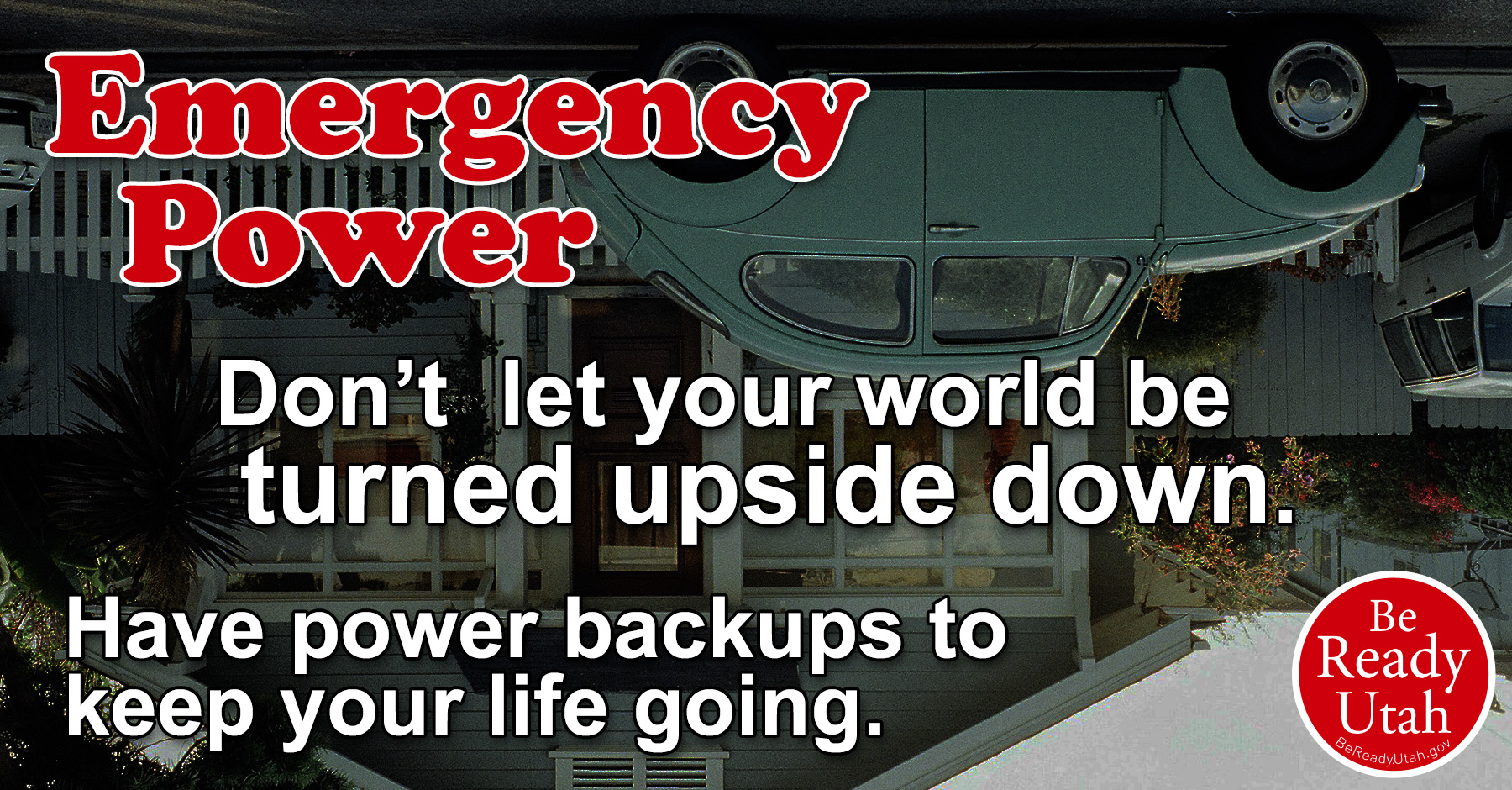Generator Use and Safety
THE POINT
Power generators are a good short-term solution to a power outage or other emergency.
Knowing how to properly and safely use them is a great way to "be ready" for a future emergency.
DO THIS
- Determine your essential emergency power needs for items like medical equipment, refrigerators and freezers, and other vital electronics.
- Talk to a licensed electrician to determine what kind and size of generator is right for your needs.
- Install carbon monoxide detectors in your home.
- Budget enough to purchase a generator without going into debt.
- Follow all manufacturer instructions and safety precautions when using your generator.
Depending on the emergency, it may be days, weeks, or longer before power is restored. To keep things like vital medical equipment, important electronics, and the fridge and freezer running, many people turn to generators. Permanent generators are directly attached to a building's electrical system and automatically turn on if the power goes out. These are expensive and must be installed by a licensed electrician. Most common are the portable generators that are typically used in camping and in emergencies.
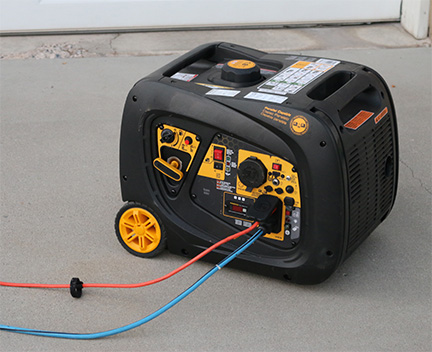
Portable Generator
Generators only work for SHORT-TERM outages. They give you enough time to adjust to your alternate or no-power plans. If you have vital medical equipment or computer systems at home, a generator gives you time to transition to the back-up medical plan, to make data back-ups, and to use up the food in your fridge and freezer. A generator should not be counted on for long-term use. It requires a lot of fuel and there’s a possibility of mechanical failure. Don’t stake your survival on it. How long a generator will continually be able to provide power depends on how much fuel you have stored, the size of your generator, the electrical load you put on your generator, and how well you take care of your generator. Follow all manufacture's directions for the proper use of your generator.
Fuel
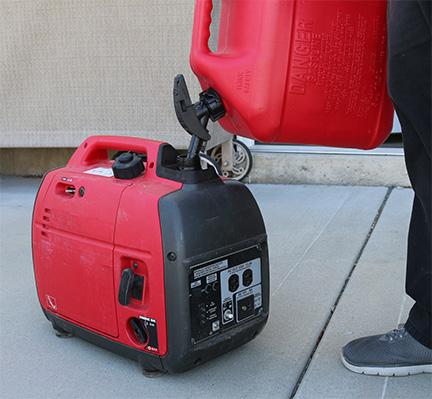 Generators typically are powered by either gasoline or propane. You are limited by storage space and law by how much fuel you can store at your residence. Check with your local fire department to see how much you can store and how to safely store it. Hint: Don't store it in your home or in an attached garage. An outbuilding like a shed is best.
Generators typically are powered by either gasoline or propane. You are limited by storage space and law by how much fuel you can store at your residence. Check with your local fire department to see how much you can store and how to safely store it. Hint: Don't store it in your home or in an attached garage. An outbuilding like a shed is best.
When filling your generator, be sure the engine is cool. Wait 20 minutes after shutting off the generator before attempting to fill again. After using, if you are going to put your gasoline generator in storage for more than a few months, use all of the fuel in the tank or add fuel stabilizer so that the gasoline will not go bad and ruin your generator.
Don't forget to also have also have a small supply of motor oil according to the manufacturer's directions.
Generator Wattage
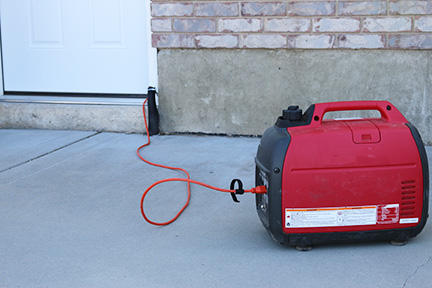 One problem people have with generators is getting one that does not produce enough power for the appliances they want to plug in to it. Make sure your generator can handle the load of the intended appliances. Many things like refrigerators and freezers have a power spike when they first start. Additionally, appliances can be damaged if they are run on insufficient power. Be sure the generator has enough power and you know how to use it before you have to depend on it.
One problem people have with generators is getting one that does not produce enough power for the appliances they want to plug in to it. Make sure your generator can handle the load of the intended appliances. Many things like refrigerators and freezers have a power spike when they first start. Additionally, appliances can be damaged if they are run on insufficient power. Be sure the generator has enough power and you know how to use it before you have to depend on it.
Remember that if your power goes out, you shouldn't power everything in your home like you did before. DO NOT plug the generator into an outlet or circuit panel. Home generators must be installed by professionals to avoid dangerous power back feed that could cause fire or electrocution. Instead, plug appliances directly into the generator with a heavy duty extension cord that can handle the wattage. Ask your hardware store retailer for help if you have questions.
Don't power everything at once. Run the fridge only a couple of hours a day, then rotate to the freezer for a couple of hours. Leave the fridge and freezer doors closed as much as possible. Remember to have some time to charge your electronic devices and back-up batteries as well. When not in use, turn off the generator to save fuel.
Generator Safety
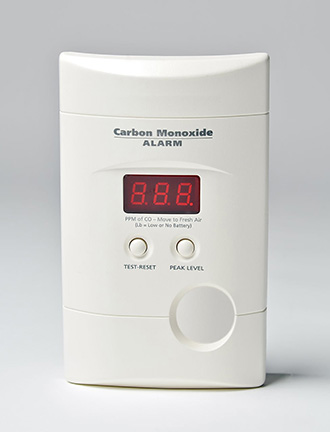
Carbon Monoxide Alarm
One of the biggest safety concerns with generators is carbon monoxide (CO). When they are running, gasoline powered generators produce CO which is a colorless, odorless gas that not only displaces oxygen, but it is toxic.
- Generators should ONLY be run outdoors and 20 feet from the nearest door, window, or other opening into the building.
- Allow 3 to 4 feet of space on all sides of a generator to allow for adequate ventilation and to prevent over heating.
- Do not run a generator in the garage either. CO could still build up to toxic levels.
Even with these precautions, you need to have working CO detectors in your home, on every floor, and in each sleeping area. Check the alarms monthly and change batteries every six months.
Another safety concern is the possibility of fire. Remember that generators run hot.
- Keep generators away from combustible materials.
- Use caution when fueling and refueling. Let the generator cool for 20 minutes before refueling and cleanup any spills immediately.
- Check fuel storage containers periodically for leaks and replace as necessary.
Electrical shock is the other safety issue associated with generators.
- Only have generators attached to your home or other building by a licensed electrician.
- Only use a heavy gauge, grounded extension cord that can handle the load you are putting on it. Check the cords for wear and tear and replace as necessary.
- Do not over load the capability of your generator with too many appliances and devices or even with one device that is beyond the capacity of your generator.
- Do not use your generator in wet conditions or in the rain. Be sure the ground is dry where you are using your generator.
- It is a good idea to use power cords with ground fault circuit interrupter (GFCI) protection.
12 Areas: Light and Power
Click Here
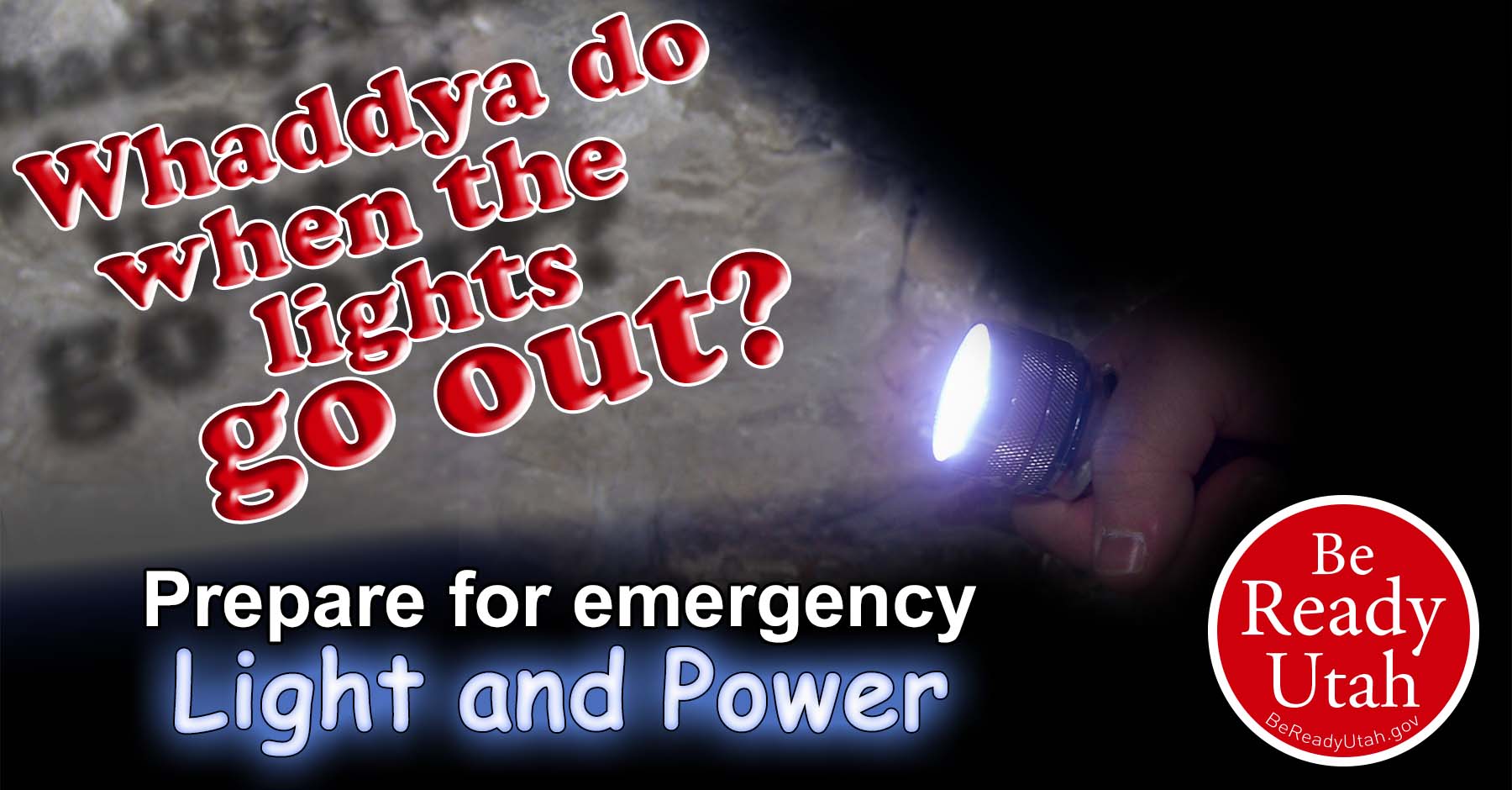
Power Outage
Click Here
